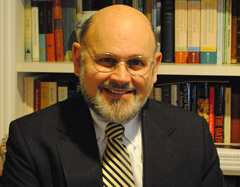October 03, 2016
 Researchers, being people, have the frailties of all human beings. Some are tempted to indulge in ad-hominem personal attacks, reputational smears, bullying, name-calling, and defamation. This unpleasant underside of research is more than embarrassing and confusing to the public. Uncivil behavior is an obstacle to progress in science.
Researchers, being people, have the frailties of all human beings. Some are tempted to indulge in ad-hominem personal attacks, reputational smears, bullying, name-calling, and defamation. This unpleasant underside of research is more than embarrassing and confusing to the public. Uncivil behavior is an obstacle to progress in science.
The origin of the expectations for researchers’ behavior lies in the privileged social status of those who practiced science in past centuries. Science was once a gentlemanly avocation, pursued almost exclusively by men of a privileged and wealthy upper or middle class. Such people, it was assumed, would never think of violating the code of honesty, integrity, and personal rectitude expected of a “gentleman.”
The democratization and globalization of research in the late 19th century and through the 20th century was profoundly good and necessary, but class-based assumptions of “gentlemanly” behavior lost some of their force. In a pluralistic, skeptical (sometimes cynical), and increasingly competitive world, appropriate behavior cannot be taken for granted.
One might think that comportment would not matter—that science, being objective, could easily rise above crude and prejudicial behavior and dysfunctional relationships—or that personal conflict might even enhance critical acuity in research. Uncivil behavior, however, is not just unpleasant; it can be highly destructive for science. Personalizing a difference of opinion tends to shut down rational discourse, puts up barriers to discussion, and raises defensiveness.
A historical example of how uncivil behavior interferes with science was the alienation of Hugh Sinclair, the Oxford scientist whose predilection for spite arguably set back the field of human nutrition in the 1950s. A more recent example is the “nano-imaging feud” in which a dispute over interpretation of an image at the limits of resolution led to personal attacks in the blogosphere and recriminations. And, of course, there is constant, egregious, vituperative name-calling over climate science, directed toward anyone with the temerity to study the topic.
Certainly, such behavior is profoundly dispiriting and misleading to students and trainees, and it gives ammunition to those who question science’s special role as a way of knowing the material world. The research community, however, cannot deal with uncivil behavior the way it deals with misbehavior and fraud. Uncivil behavior in research, like unruly speech in a democracy, occurs in a privileged and protected space that allows unrestricted free expression; liberty is always the higher value.
Researchers continue to assume that civility in science will be learned passively by diffusion. This is a naïve assumption. We must actively teach our students and each other by example about responsibility and civility in relationships in research, not only because it makes life more pleasant but also because boorish behavior holds back the advancement of science and engineering.
/tee_guidotti_signature.tmb-small.jpg?sfvrsn=a883bb58_1)
Tee Guidotti
President
Sigma Xi, The Scientific Research Society